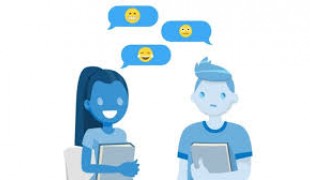- 10539
- 562
- 24
- 18
- 1
- Help Ukraine
About the solution
Once diagnosed, a child with autism spectrum disorder (ASD) and his/her family face hours per week of social, communication, motor, and behavioral therapies delivered by a variety of professionals. The therapies range from teaching building block skills like eye contact to handling increasingly complicated social situations in which a person with autism might struggle. The cost and logistical challenges for a family are immense. Depending on a family’s health insurance and state Medicaid program, coverage for services that can cost in the range of $50,000 a year out of pocket can be inadequate or nonexistent. Depending on where a child lives, the family might face long commutes to get the services needed. As an example, the Missouri HHS reported that in 2017, 75% of counties lacked a single licensed autism therapist.
What if you could use virtual reality to create content that helped kids with basic social skills like eye contact? What if you could build complex virtual environments to practice and role play social situations? What if this could be done while also allowing an adult using a device like an iPad monitor and actively coach a person with ASD while that person is in a virtual reality environment? And what if this product gave a parent superpowers to step into helping their child like never before? That’s Floreo. Built to achieve real world results using VR, simple enough for a parent to use, and with a monthly price less than an hour of therapy utilizing the smartphone in our pocket, a standard iPad, and $15 VR headset.
We have developed an app that uses Virtual Reality to provide a supplementary method of teaching social and communication skills for individuals with Autism Spectrum Disorder (ASD). Our library of lessons is fun and engaging for the learner.
Floreo is designed to be a supervised experience. While the Learner experiences the lesson through a mobile VR headset in conjunction with an iPhone, an adult Coach guides the lesson in real-time via an iPad. We have three different types of lessons: building social connections, managing real-life interactions, and calming/practicing mindfulness. Floreo is currently being used by schools, therapy practices, and parents.
This solution shall not include mention to the use of drugs, chemicals or biologicals (including food); invasive devices; offensive, commercial or inherently dangerous content. This solution was not medically validated. Proceed with caution! If you have any doubts, please consult with a health professional.
DISCLAIMER: This story was written by someone who is not the author of the solution, therefore please be advised that, although it was written with the utmost respect for the innovation and the innovator, there can be some incorrect statements. If you find any errors please contact the patient Innovation team via info@patient-innovation.com
-
-
362
-
0
-
3731

ONEder - an app that helps children with autism
COMMUNICATION: Communicating, whether by speaking, listening, or other means
Autism
App (Including when connected with wearable)
Anxiety
Difficulty concentrating or making decisions
Social withdrawal or isolation
Depressed Mood
Irritability or anger outbursts
Sleep disturbances
Managing Neurological Disorders
Improving Speech and Communication
Caregiving Support
Child and Adolescent Psychiatry
Pediatrics
Psychiatry
United States
-
-
-
1019
-
0
-
21860

System to track autistic children
CAREGIVING
COMMUNICATION: Communicating, whether by speaking, listening, or other means
Social interaction
Autism
Assistive Daily Life Device (to help ADL)
Body-Worn solutions (Clothing, accessories, shoes, sensors...)
App (Including when connected with wearable)
Anxiety
Difficulty concentrating or making decisions
Social withdrawal or isolation
Restlessness or feeling slowed down
Loss of interest or pleasure in activities (anhedonia)
Promoting self-management
Managing Neurological Disorders
Preventing (Vaccination, Protection, Falls, Research/Mapping)
Caregiving Support
Child and Adolescent Psychiatry
Medical Genetics
Neurology
Pediatrics
Psychiatry
Israel
-
-
-
635
-
0
-
8976

Music to help autistic children
COMMUNICATION: Communicating, whether by speaking, listening, or other means
CAREGIVING
Listening to music
Autism
Podcast
Educational/Leisure device (book, toy, game...)
Social Media
Difficulties with speech
Difficulties learning how to talk
Promoting self-management
Managing Neurological Disorders
Promoting inclusivity and social integration
Improving Speech and Communication
To improve Treatment/Therapy
Raise awareness
Caregiving Support
Child and Adolescent Psychiatry
Neurology
Pediatrics
Psychiatry
United States
-
 en
en
samuelddarden • Wed, 09/04/2019 - 02:29
Teaching your children pick up social skills and communicate well is a big task for parents. grub guardian